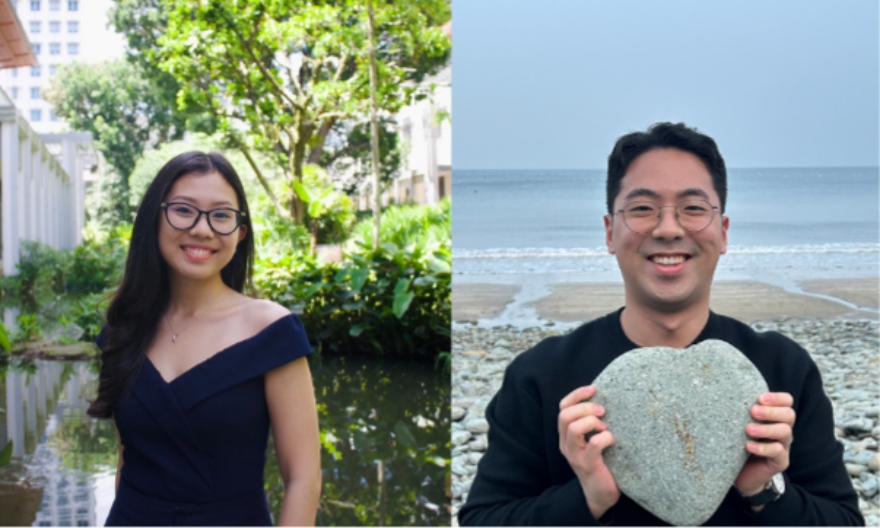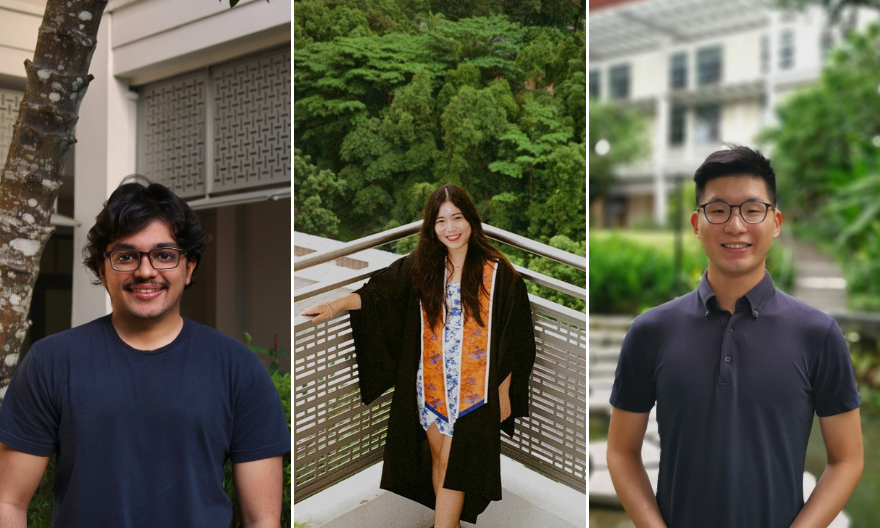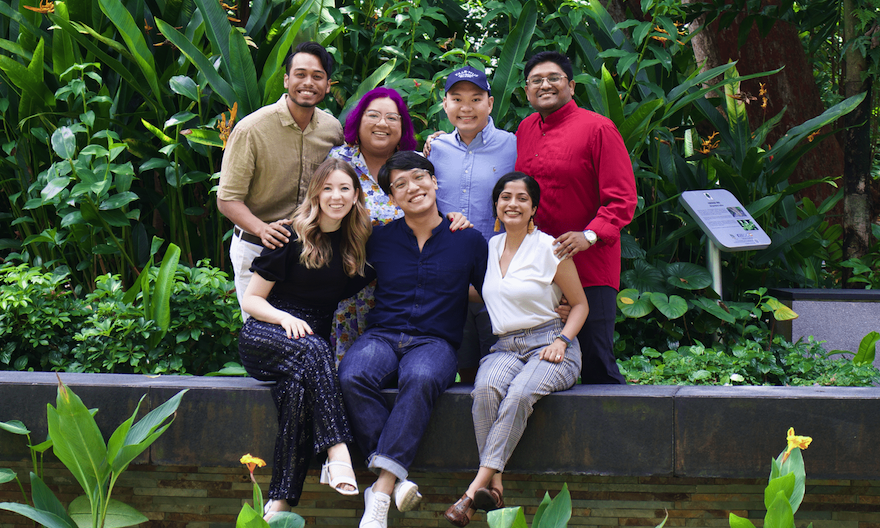Footnotes of History: Behind the scenes with the Yale-NUS alumni who contributed to the Singapore Bicentennial commemorations
“A whirlwind of constant emails and calls, too many buzzing WhatsApp groups, and rushing around the island for outreach events, meetings and site recces.”
That was how Ms Yap Zhiwen (Class of 2017) described the process of organising The Future of our Pasts Festival (TFOOPFest), a month-long public event organised by Yale-NUS College showcasing projects by students and recent graduates from tertiary institutions, who were commissioned to investigate less-explored narratives of Singapore’s history and present them via creative or artistic media. Through an array of showcases ranging from exhibitions and public installations to immersive performances and even a short documentary film, the projects explored diverse themes of space, architecture, communities, language, race, relationships, and the arts.
As festival manager for TFOOPFest, Ms Yap managed its programming and events, finance, social media, and collaboration with partner organisations. She also worked closely with commissioned project creators to administer the grant funding and support their project development, and collaborated with marketing agencies on the festival’s branding, design and communications strategy.
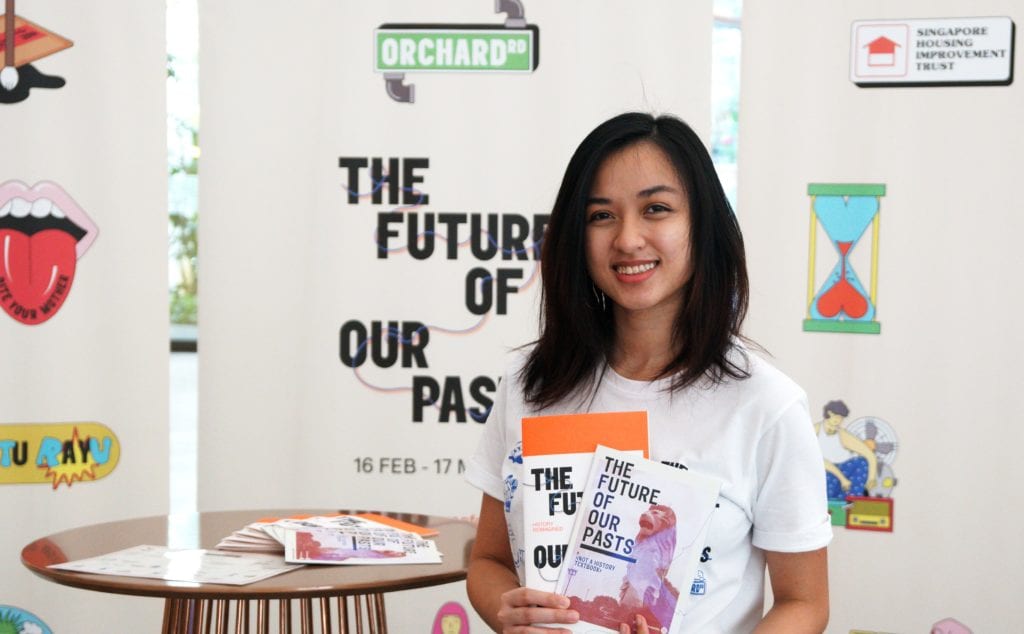 “I was concluding the Festival closing event with a final speech. The moment I said my last word, I actually teared up a little because I was so overwhelmed with emotion and pride about what we had accomplished.” Image provided by Ms Yap Zhiwen.
“I was concluding the Festival closing event with a final speech. The moment I said my last word, I actually teared up a little because I was so overwhelmed with emotion and pride about what we had accomplished.” Image provided by Ms Yap Zhiwen.
While those responsibilities might seem overwhelming, Ms Yap said that she couldn’t have pulled through without the hard work and dedication of the numerous student associates and volunteers, exhibition designers, and the various creative agencies she worked with. She also had a lot of support from President of Yale-NUS College Professor Tan Tai Yong, who was “the best boss I could have asked for”. Despite being fresh out of college, she was allowed almost complete autonomy to conceptualise and plan the festival from scratch. “Without his trust and support, I wouldn’t have been able to execute my vision for the festival so freely and completely,” she said.
Ms Yap also credited her experience as a member of the inaugural Yale-NUS cohort for developing her resilience and ambition. “I was planning this inaugural festival from scratch, with no past iterations to reference, and I honestly didn’t know what it would take to run a national-scale, month-long festival,” she said. “I think Yale-NUS gave me a strong ‘make-things-happen’ attitude, which enabled me to deal with the numerous obstacles faced over the two-year-long planning process calmly and positively.”
When asked if she thought her efforts had an impact on the historical narratives of Singapore, she said, “It would be delusional to think that a single festival can change an entire nation’s view on its history just like that.” She did believe, however, that TFOOPFest created a space for lesser-known historical narratives to be brought to light and reimagined, and helped spark public dialogues about the complexities of history and collective memory. “Because of the festival’s youth-centric communications strategy, I think we also encouraged youths to establish a more personal connection with Singapore’s pasts,” she said. “Hopefully they will come to realise that history is far from boring or irrelevant!”
Mr Nicholas Lua (Class of 2019) found one way to have personal connection with history: he was a speaker on a panel discussion organised by the International Council on Monuments and Sites (ICOMOS) Singapore. Titled “Remembering Our Pasts? For What?”, the speakers were invited to speak about their concerns with the year’s bicentennial commemorations. Aside from Mr Lua, The panel comprised of respected academics such as Mr Kwa Chong Guan, Senior Fellow at the S Rajaratman School of International Studies; Associate Professor Huang Jianli of the National University of Singapore (NUS) History Department and Research Associate of the East Asia Institute; and Dr Hong Lysa, independent historian and former member of the NUS History Department.
“The prospect was actually quite intimidating at first,” said Mr Lua of being the youngest speaker on the panel. “I mean, I read some of Professor Kwa’s work as research for my capstone project. What could I add that these senior academics hadn’t already talked or written about?”
Nevertheless, Mr Lua accepted the invitation to speak on the panel. He focussed on the discussion surrounding the historical gardens opened at Fort Canning Park to coincide with Singapore’s bicentennial: the Sang Nila Utama Gardens (named after the legendary Palembang prince who founded the Kingdom of Singapura in the 13th century) and the Pancur Larangan (Malay for “forbidden spring”). When these gardens were opened earlier this year, there was criticism from the local heritage community that the structures in the gardens were not based on historical evidence: features in the Sang Nila Utama Gardens, for example, resembled Majapahit empire-era architecture, despite the fact that Sang Nila Utama could trace his ancestry back to the Srivijaya kingdom, an altogether different empire based in Indonesian Sumatra.
At the time, the National Parks Board (NParks), the local statutory board which designed and constructed the gardens, defended their decision by saying that the historical gardens were not meant to be replicas or re-creations, but representations of what 14th-century structures could have looked like. Mr Lua was uncomfortable with this reasoning: “I worried that the public might not be able to easily grasp the distinction between ‘re-creations’ and ‘representations’ of Singapore’s distant past,” he said. “Architecture in a physical space creates a powerful, material connection between past and present. I worry that, in constructing such structures, we risk imposing a version of Singapore’s long history that is underlaid by slim historical evidence.”
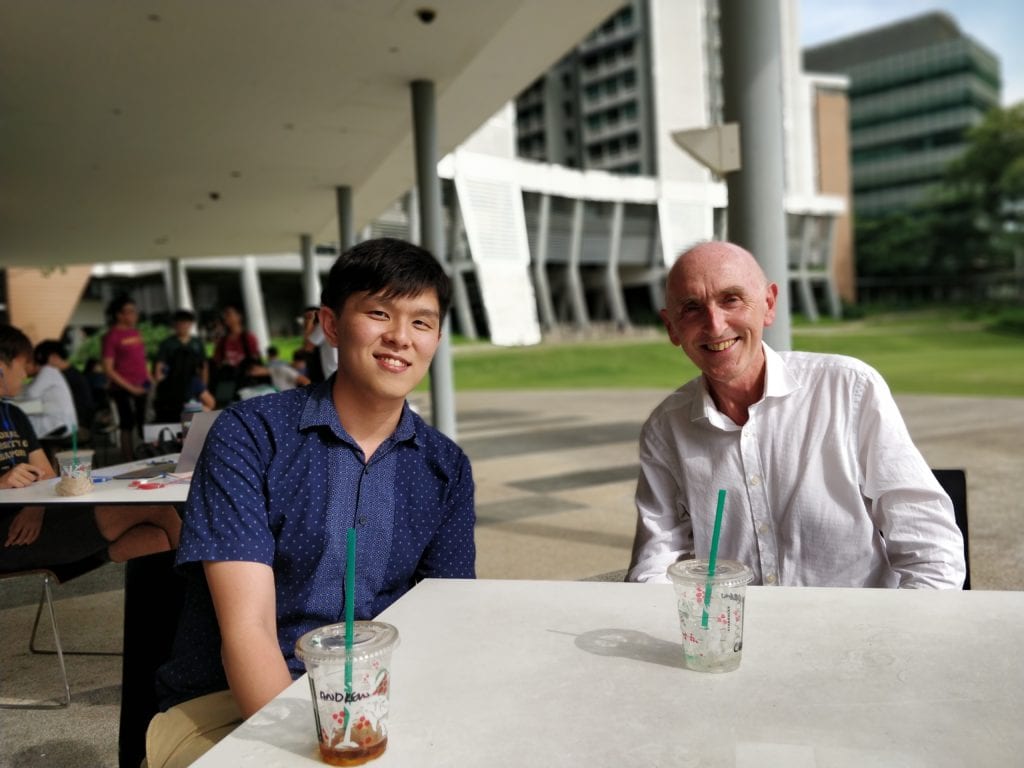 “A small part of why I agreed to participate in the panel discussion was because I own books by the other three panellists. I managed to get them to autograph my books, all at the same time!” Image provided by Mr Nicholas Lua (left), who is sitting with his capstone project advisor, Yap Kim Hao Visiting Professor of Humanities (Religion) Gavin Flood.
“A small part of why I agreed to participate in the panel discussion was because I own books by the other three panellists. I managed to get them to autograph my books, all at the same time!” Image provided by Mr Nicholas Lua (left), who is sitting with his capstone project advisor, Yap Kim Hao Visiting Professor of Humanities (Religion) Gavin Flood.
Mr Lua felt that his Yale-NUS education had equipped him with the skills necessary to explore the relationship between the present and a distant, antique past. “For instance, reading Associate Professor of Humanities (Literature) Andrew Hui’s monograph on ruins shaped the way I thought about the Pancur Larangan and Sang Nila Utama Gardens,” he said. Yale-NUS also provided him the opportunity to study ancient languages like Latin and Sanskrit, which, in addition to opening access to distant pasts, also allowed him to reflect seriously on their antiquity.
In the end, Mr Lua overcame his apprehension about being the youngest speaker, and found that the experience gave him a real sense of the debates about the value of history that senior generations of academics have engaged in. “One thing the History majors in my cohort discussed a lot was the value of our education: why study history – and more broadly, the humanities?” he said. “We keep hearing that such studies do not translate into tangible or monetary benefits, and that the humanities are in decline – especially in Singapore.”
“But this panel showed me that despite what people say, clearly there are people in Singapore who care about history and the humanities – which reassured me that I should keep engaging with these subjects,” he said.

